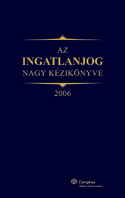Introduction
In Hungary the arbitration procedure is regulated on the basis of the UNCITRAL model law brought in 1994 No. LXXI. The law settles the rules of the procedure in a dispositive manner enabling the wishes of the parties. The effect of the law extends to both the ad hoc arbitration brought about to settle a single dispute and the institutionalised arbitration court. Whilst the ad hoc arbitration together with its procedural rules are brought about by agreement between the parties, the permanent arbitration court can only be brought about through the charter of foundation of a national chamber of economy, and it has its own procedural regulations.
General rulings
The use of arbitration instead of the state court is only possible where the parties have stipulated this i.e. in the case of an arbitration clause or arbitration contact in the event that at least one of the concerned parties is a person engaged professionally in economic activities and the legal dispute is related to this activity and the parties can define the object of the procedure at will.
Arbitration procedure is not possible in the case of special procedures within the Code of Civil Procedure (e.g. in cases concerning personal status in administrative procedures) and also if the law excludes it.
The arbitrational contract is none other than an agreement by the parties to settle through an arbitration court any dispute which arose or will arise from their legal relationship, defined by them, whether contractual or falling outside a contract. Only a written arbitrational contract is valid and can form part of another contract or be an independent contract. The law accepts as a written contract exchange of letters or telegrams between the parties through an engine telegraph or any other tool that permanently registers the exchange of messages by the parties. The same judgement is brought if one party states in his statement of claim, and the other party does not deny in his replication that an arbitrational contract exists between them.
If state court procedures have been filed in a case where the case concerns the subject of the arbitrational contract, the court will dismiss the action without issuing a statement of claim or will cancel the case upon request by either party, except if in their opinion the arbitrational contract did not happen, is non valid, is ineffective or cannot be upheld. Submission of the above statement of claim however does not mean that the arbitration procedure cannot begin.
The appointment of arbitrators, their exclusion and cessation of court tenure
The arbitrators are independent and unbiased in spite of the fact that the parties nominate them they are not representatives of the parties. During their procedure they cannot accept any orders and are obliged to total secrecy. In the case of the permanent court of arbitration they are obliged to declare all this in a written declaration.
The office of arbitrator cannot be held by anyone who:
has not passed their 24th birthday,
has been banned from public affairs by a valid court judgement,
has been placed under care by a valid court judgement,
has been sentenced by a judgement at law to imprisonment, until such time as the person is not exempt from the disadvantages associated with a convicted past record.
The arbitration court can consist of a single proceeding judge or of a council comprising several judges. Where the parties cannot agree a council of three will proceed. The parties each appoint a judge, who in turn appoint the third member of the council – in the case of more members, the other judges. If any party does not fulfil their obligation to appoint or if the appointed judges cannot agree on the person of the third judge, on request of either party the missing judge can be appointed by the authoritative county court. In matters relating to arbitrational procedures the authoritative county court is the one in whose area the headquarters of the defendant are located or on the area of which the signing of contracts leading to the legal dispute happened. If the authoritative court cannot be defined in this manner, the Fõvárosi Bíróság (Capital Court) will proceed.
The arbitrator's appointment takes effect from the time of acceptance thereof, and ceases by resignation, exclusion or agreement by the parties.
Should any circumstance prevail giving rise to legitimate doubts concerning the independence or impartiality of the judge, or if he does not have the qualifications required by the parties, they can submit a request for expulsion. The request for expulsion must be submitted within fifteen days from the time that the composition of the arbitration court or of the circumstance giving reason for it became known. The arbitration court will address the request. If the motion for expulsion is not successful, the applicant can turn to the relevant county court within thirty days.
If the reason for exclusion from the office of arbitrator arises after the nomination, or if the arbitrator judge really becomes incapable of seeing to his duty, or for any other reason does not take action within the appropriate time, he can resign from his office or the parties can agree upon cessation of the appointment.
Jurisdiction of Arbitration
The arbitration tribunal decides concerning its own jurisdiction. During the decision concerning this the future disputes clause must be deemed independent from the other stipulations of the contract, that is the invalid or void nature of the contract does not in itself mean that the future disputes clause becomes invalid or void. Any objections to the jurisdiction of the arbitration must be submitted at latest at the same time as the submission of the replication, whilst any objection to excess of jurisdiction must be addressed at the time the supposed excess occurs.
The arbitration can order either party to take such temporary measures or issue a surety, as it deems necessary in respect of the subject of the dispute. Any request by the party submitted to a state court directed at temporary measures is not incompatible with the arbitrational procedure.
Arbitration procedure
The rules concerning the arbitration procedure are defined freely by the parties taking into account the equal treatment of the parties. Where there is no agreement of the parties the rulings of the law shall prevail.
The arbitration procedure, in contrast with the state court procedures, is not public. Unless otherwise agreed the language of the procedure is Hungarian. In the case of ad hoc arbitration the court taking the circumstances of the case into consideration shall define the place of the arbitration. The procedure starts on the day that the defendant receives the declaration referring to taking the dispute before arbitration.
In the case of a permanent court of arbitration the articles of association define the place of the procedure, and the procedure begins on the day that the arbitration court receives the statement of claim. The parties are obliged to submit their claim or replication or the supporting facts within the prescribed deadlines. During the procedure either party can modify or supplement their claim or replication. The court hears the parties, the witnesses and the experts but cannot apply fines or other means of coercion. Minutes must be taken of the arbitration procedure.
If the claimant submits his claim without giving reason, the arbitration will cease the procedure. If the defendant does not submit his replication the court is obliged to continue the procedure.
Similarly to the state court the arbitration court is also entitled to request an expert opinion to pass judgement in matters requiring professional knowledge.
Upon the request of the arbitration court, during the demonstration, the local court on whose area the production of evidence is the most advisable, will offer legal support during the demonstration and by applying any means of coercion necessary during the demonstration. In Budapest the Pesti Központi Kerületi Bíróság (Pest Central District Court) will proceed.
The court proceeding in Council will bring its verdict by majority vote. Where there is a no majority the presiding judge will decide. The arbitrational procedure ends with a verdict brought on the merits of the case or with an order ceasing proceedings. If the parties come to an agreement in the legal dispute, the court will cease the proceedings with an order. If by mutual consent of the parties the agreement is encased in a verdict, the force of the agreement is the same as the force of the verdict.
The arbitration court will cease the proceedings if:
– the claimant does not submit his claim,
– the claimant withdraws his claim,
– the parties agree on the cessation of the proceedings,
– the court deems that for whatever reason continuing the procedure is not necessary or is not possible.
Amendment of the verdict, its interpretation or supplement thereto is possible by request and out of office.
Annulment of Arbitration Verdict
There is no possibility for legal remedy against the verdict of the arbitration. Within sixty days from the receipt of the verdict the party and anyone whom the rulings of the verdict refer to can request the annulment of the verdict from the authoritative county court, if:
– the party signing the arbitration contract was legally incapable or did not have the ability to act,
– the arbitration contract according to the law on arbitration, according to Hungarian law is void as it was missing the legal constituent clause,
– proper notification was not served of the appointment of the arbitrator or of the arbitration procedure or the party was not able to submit the case,
– the verdict was brought in a case of dispute at law which arbitration stipulation does not apply to,
– the composition of the arbitration court or the procedure did not correspond with the agreement made by the parties or where this is missing, with the rulings of the law,
– the object of the dispute according to Hungarian law does not fall within arbitration,
– the verdict contravenes Hungarian public order.
The court can suspend the execution of the verdict brought by arbitration at the request of the party. The effect of the arbitration verdict is the same as that of a court judgement at law and the rules governing the execution of court verdicts are also authoritative in its execution.
——————————————————————————–
September 2007


